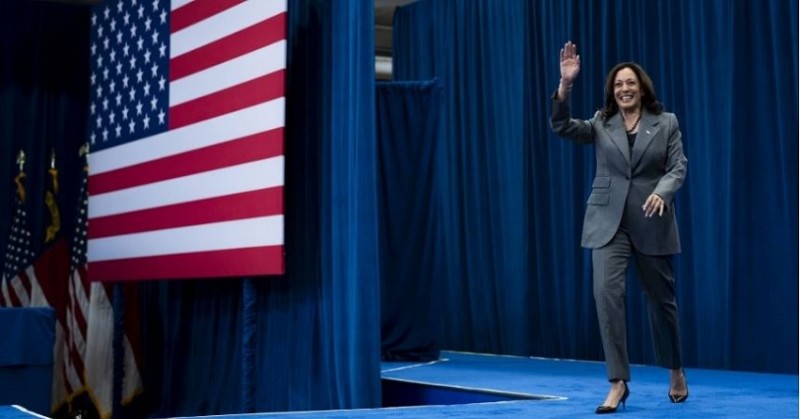
SELMA: Early this year, Vice President Kamala Harris recognized a pressing need for change. As critiques of President Joe Biden's age and memory emerged, Harris felt it was essential to establish her own identity and reassure voters about the Biden-Harris ticket.
Determined to play a more prominent role, Harris took on an ambitious travel schedule, making over 60 trips this year. She spoke out more forcefully on issues such as abortion rights, the Gaza conflict, and racial matters, often sharing her personal experiences, from her mother’s influence to her career inspirations.
Harris' supporters highlight that she has been taking on more responsibilities, particularly after the Supreme Court overturned Roe v. Wade. Even before Biden's recent debate performance raised questions about his capability, Harris was seeking ways to strengthen the ticket.
Now, as Biden's candidacy faces critical challenges, Harris' reintroduction effort is crucial. Following Biden's lackluster debate in Atlanta, some Democrats are considering Harris as a potential nominee. Her allies argue she is the logical choice to lead if Biden steps aside, with figures like Rep. James Clyburn, D-S.C., voicing their support for her.
However, some Democrats worry about the risks of having Harris at the top of the ticket, given her 2020 presidential campaign's swift unraveling. Concerns about her public perception and command over issues have been raised.
Despite these concerns, Harris has gained more visibility and a second look from the public. A CNN poll even showed her narrowly leading Biden in a hypothetical matchup against former President Donald Trump, although she still lost to Trump in the survey.
In recent weeks, the Trump campaign and Republican critics have intensified their attacks on Harris, hinting at potential racist and sexist assaults if she runs for president. Democratic leaders, however, argue that choosing another candidate could alienate key constituencies, including Black women who were pivotal in Biden's 2020 victory.
Throughout interviews, Harris' main goal has remained clear: to support Biden and demonstrate her capability to step into the presidency if necessary. Friends and advisors have noted a change in Harris this year, reflecting a more authentic and determined approach.
At a February meeting with Black pastors in South Carolina, Harris engaged more genuinely with attendees, showing a deeper connection. This change was also evident in her speech in Selma, Alabama, for the 59th anniversary of Bloody Sunday. Her speech, which acknowledged the humanitarian crisis in Gaza, received significant attention for its focus on Palestinians and implicit criticism of Israel.
Harris has also become a leading voice on abortion rights, sharing personal stories to highlight her stance. At a gathering of Asian American, Native Hawaiian, and Pacific Islander groups in May, she spoke about the challenges of being the only woman of color in many rooms, emphasizing resilience and determination.
Despite the political pressures and criticisms, Harris has continued to support Biden firmly. At a recent campaign fundraiser in California, she reiterated her commitment to Biden's candidacy and expressed confidence in their ability to defeat Trump again.
While Republicans are quick to discredit her, labeling her as incompetent, the White House has emphasized its trust and reliance on Harris. Chief of Staff Jeff Zients praised her problem-solving abilities and judgment, noting that Biden's confidence in her has only grown.